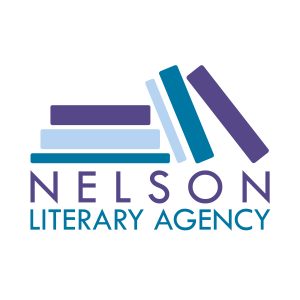The writing world is transitioning back to in-person conferences, and we couldn’t be more excited! But the unexpected benefits of virtual events means they’re probably here to stay. Whether you’ll soon be pitching in-person or over Zoom, here are ten tips to help you present as professional, knowledgeable, and ready to take on the publishing industry.
1. Practice.
Run through your pitch a few times in front of the mirror (if you’ll be pitching in person) or in front of your computer with your camera on (if you’ll be pitching virtually). You can even record yourself and play back your practice pitches until you feel like you’re nailing it. If you’re super nervous, start by pitching to a sweet-faced stuffie or your least judgy-looking pet. Work up to your friends and family. But know that you’re going to get the best feedback from other writers. They can give you tips on the pitch itself as well as on your delivery, so when you’re ready, ask your critique group if you can practice on them. (See #6 below for another practice tip.)
2. Avoid reading off a piece of paper.
Have you ever attended a lecture or keynote where the speaker read word-for-word off their PowerPoint slides or note cards? Of course you have. Everyone has. It’s a little monotonous, right? The speaker’s lack of interaction with the audience is awkward and yawn inducing. The same can be true of a pitch appointment. Reading the agent your query letter or synopsis isn’t your best move, and there are several reasons why. First, imagine what the agent or editor will be looking at while you read: the top of your head. Second, it can be difficult to hear you if you’re aiming your voice at the paper in front of you, especially in a crowded pitch room. If you’re pitching on Zoom and reading off your screen, speaking right into your mic, that’s not as bad, but your reading-aloud voice might still be a little flat. Which leads me to the third and most important thing: a verbal pitch should be an engaging conversation starter. As such, it should be shorter than your query letter’s pitch paragraphs. Therefore…
3. Avoid talking the whole time.
Pitch appointments average eight to ten minutes, and those minutes go by fast. The best pitch appointments for both the writer and the agent are those that turn into personable dialogues about the book, comparable titles, and the writer’s inspiration, journey, and career goals. Yet my colleagues and I have taken tons of pitch appointments over the years that end with the writer still talking—either because they haven’t practiced their pitch and are kind of wandering through a vague recounting of their story’s events, or because they’re still explaining their backstory, world building, or themes. There’s just not time during the average pitch appointment for that kind of elucidation. Therefore…
4. Encapsulate your premise or concept.
Lead with your story’s title, genre, word count, and character- or concept-based “person with a problem” proposition. You can expand a little, but not as much as your query letter does. Then give the agent an opportunity to ask you questions…or better yet, to just go ahead and request your manuscript.
5. Make eye contact.
Whether in person or on screen, eye contact conveys confidence and commands the attention of the listener. Without it, it’s easier for the listener to zone out.
6. Avoid memorizing your written pitch.
Maybe you’re making stellar eye contact and not reading off a piece of paper. That’s good! But the word-for-word recitation of a memorized pitch also risks being humdrum—especially when the writer forgets to breathe. And let me tell you, pitch memorizers are the most likely to forget to breathe! You’re much better off knowing what you want to say and then letting it come out naturally and personably in the moment. How do you practice that? Here’s something a writer friend of mine did: Write “tell me about your book” on a dozen notecards or stickies and have a friend post them around your world (on your toothpaste, washing machine, fridge, rearview mirror, TV remote). Whenever you come across one, pretend it’s an agent or editor at a conference, and right then and there, deliver your pitch impromptu style.
7. Have paper and pen ready.
Unless your project is too far afield from what the agent is currently looking to represent, the agent is probably going to ask you for sample pages. That’s the only way they can assess whether the idea you pitched is executed well and ready for representation. So be ready to write down (a) what they want you to send (pages, chapters, full manuscript) and (b) how they want you to send it. This is especially important during virtual pitches. In person, an agent can hand you their business card. But over Zoom, you’ll need to be sure to write down their email address or the link to their submissions portal or online query form. When I’m taking virtual pitches, I post these things to the private chat window, so besides paper and pen, also have a document already open on your computer where you can copy-paste. What often happens is that the writer is so flustered by the request that they end up scrambling for something to write with and on…and then later, they can’t remember what they’re supposed to do. So they contact the event organizers, who then have to get in touch with the agent, who then has to reiterate the request, which then has to be re-communicated to the writer. Best practice? Expect a request, stay calm and collected when it comes, and have pen and paper (or an open document) ready.
8. Respect agents’ social-media boundaries.
In our more virtual world, it seems professional boundaries have become a bit more blurred. Resist the urge to slide into an agent’s direct messages on Facebook, Twitter, Instagram, etc., whether to pitch them, send links to your content, or follow up on a pitch or other submitted materials. It’s simply not professional, and frankly, it feels a bit off. I don’t know a single agent who has ever been impressed by a writer who doesn’t follow the submission guidelines outlined on their websites. So unless an agent explicitly invites professional interactions via their personal media, it’s best not to go there.
9. Remember in-person hygiene.
This one’s a little uncomfortable to talk about, and you might be wondering if we need to talk about it at all. But every agent who’s ever taken in-person pitches has stories. Hey, I’m sure writers have stories about agents’ hygiene, too. No one wants that to be the thing they’re remembered for. So as we all return to in-person life, some grudgingly trading yoga pants and slippers for tailored slacks and hard-soled shoes, here are some tips. First, forego perfume or cologne the day of your pitch. A few years ago, Agent Kristin ended up sneezing and mopping her eyes all the way through a pitch appointment because she had an allergic reaction to whatever scent the writer was wearing. Second, slip some mints or hard candies into your conference bag. These aren’t just for your breath—they also help remedy anxious dry mouth in the moments before your appointment. To that point, have a bottle of water in your bag as well. Finally, I know several conference regulars who carry a little travel-sized deodorant or antiperspirant in their conference bags. Great to have on hand for pre-pitch anxiety, sure, but also for surviving long breakout sessions when the hotel air-conditioning is on the fritz. (Why is the hotel air-conditioning always on the fritz?) Better to have it and not need it than need it and not have it.
10. Don’t be nervous.
Ha! Like it’s that easy, right? Of course there are nerves involved in pitching. The only way to combat the anxiety is to be practiced and prepared, and to keep signing up for pitch appointments every time you have the chance, both in person and online. Once you know what to expect, there will be fewer surprises, and you’ll be a pitching pro in no time.
Photo by Miguel Á. Padriñán from Pexels










